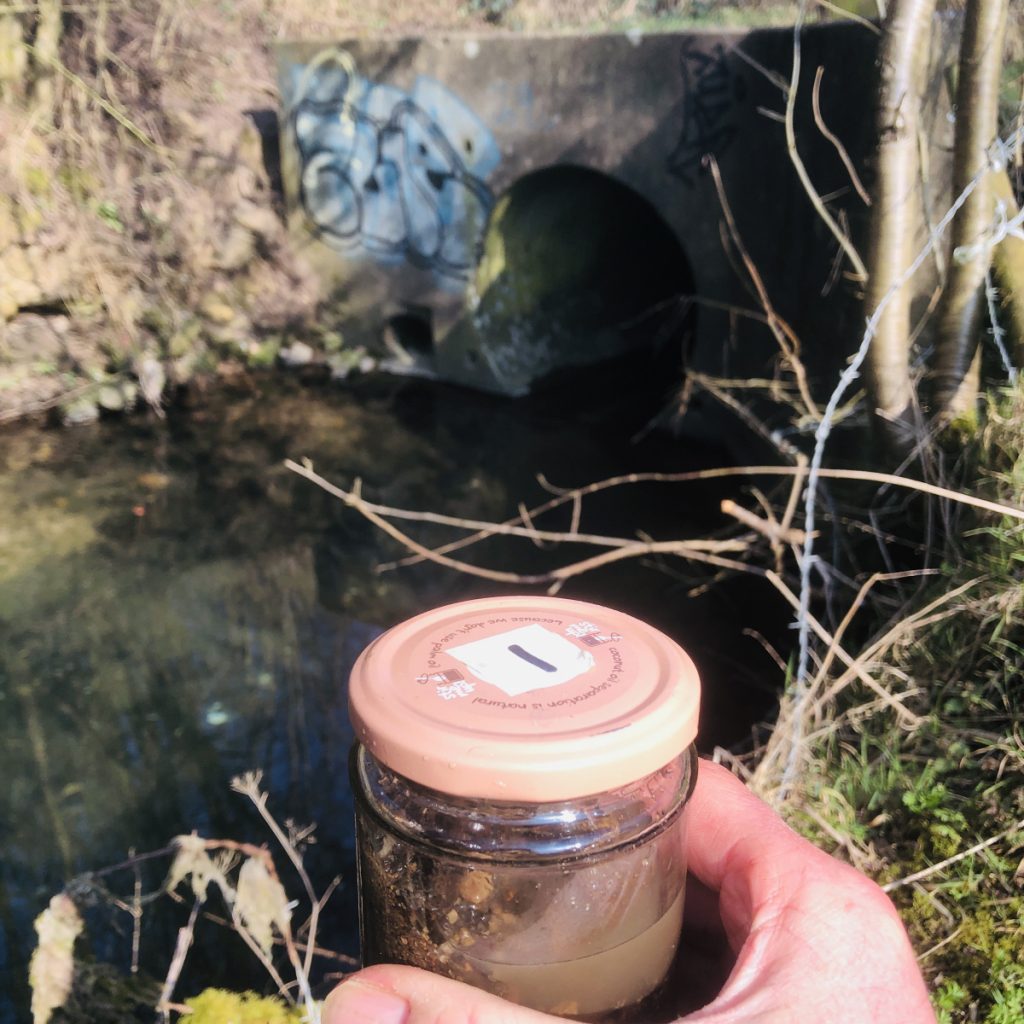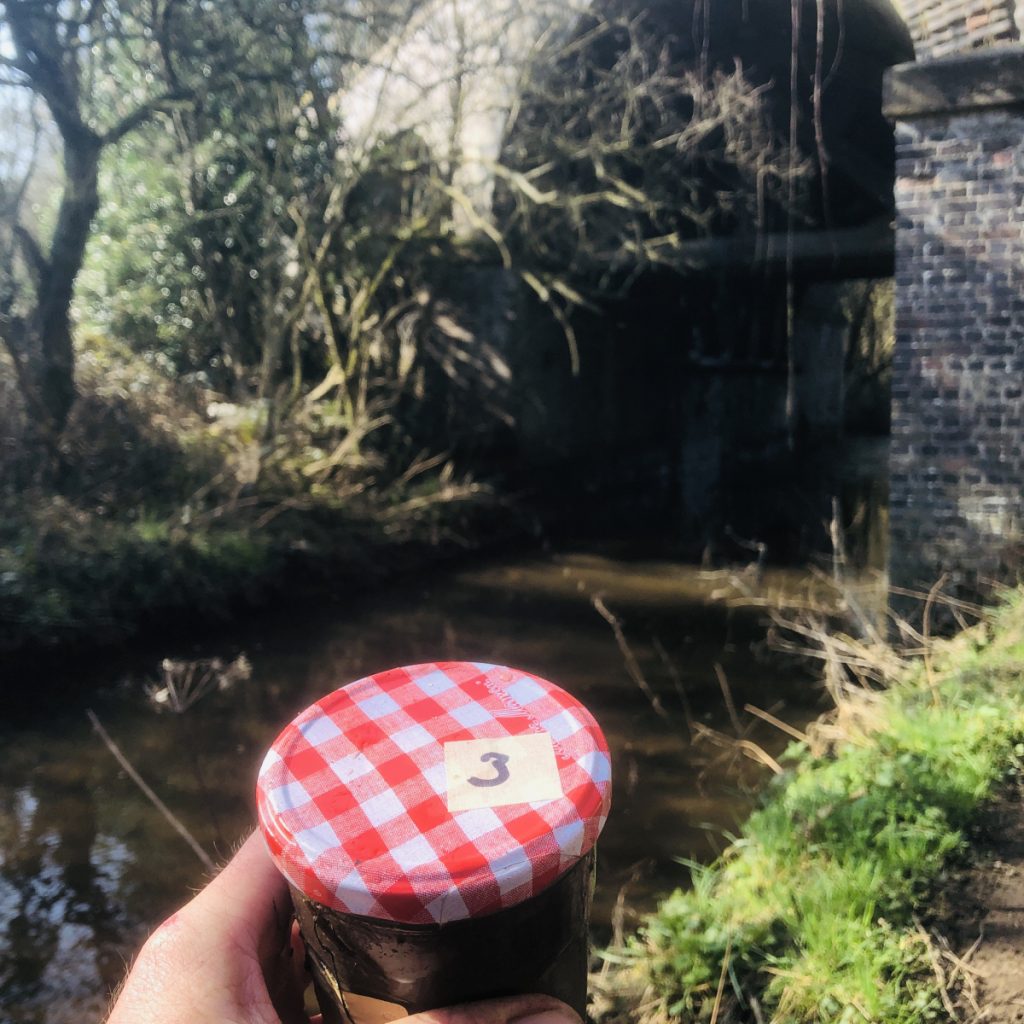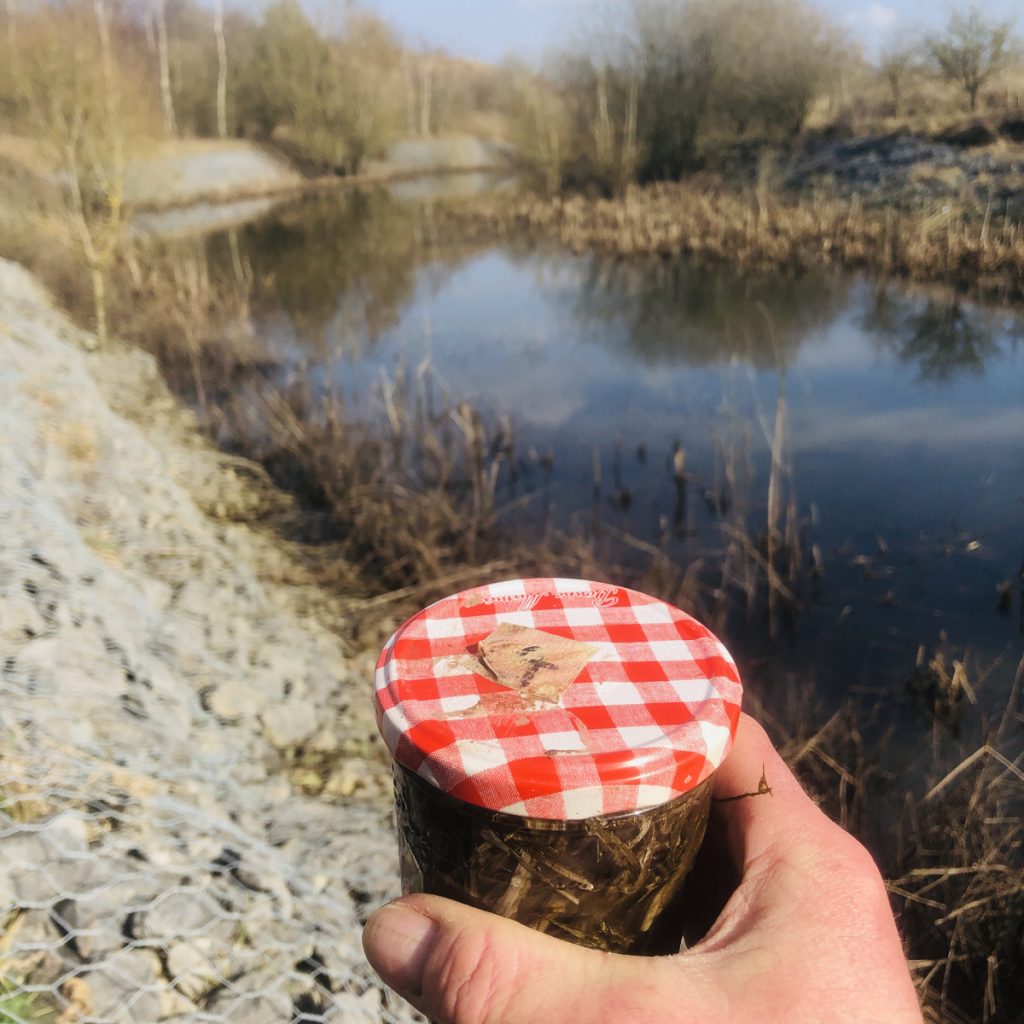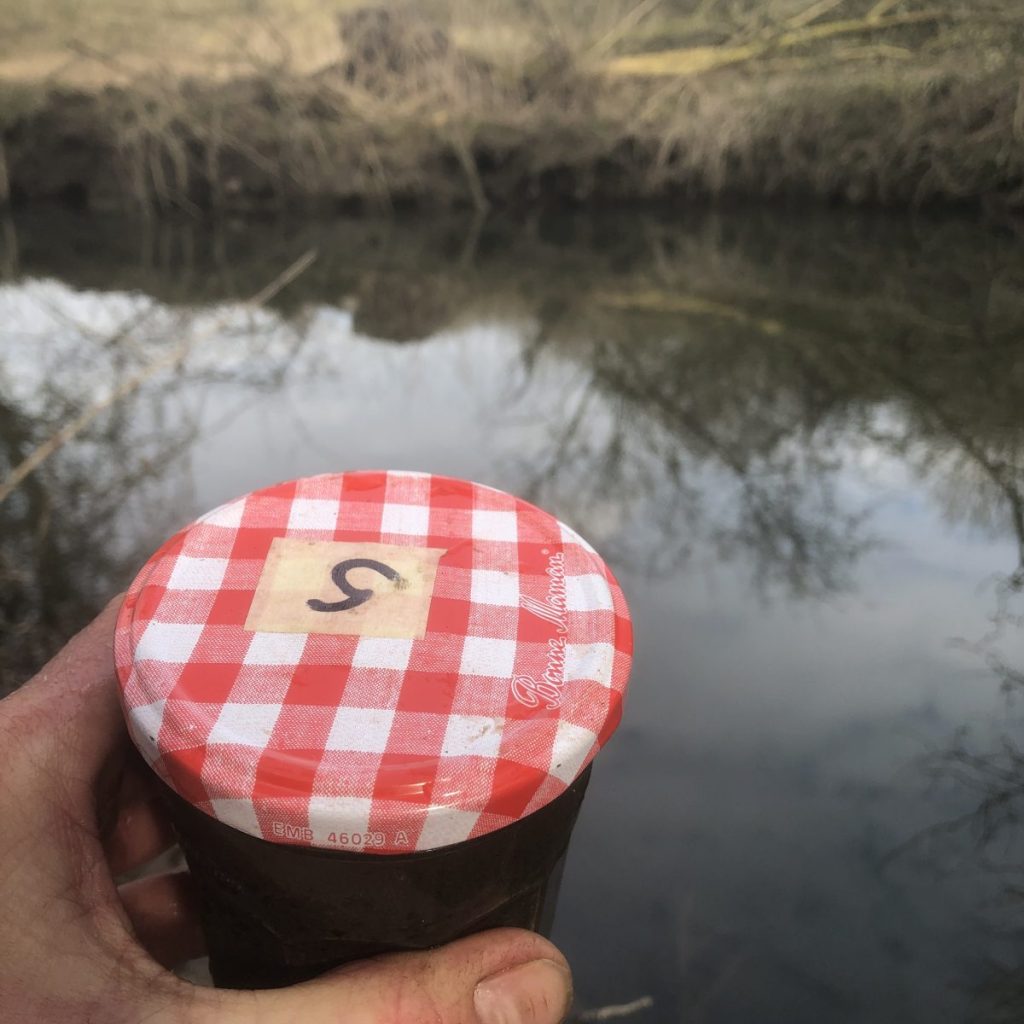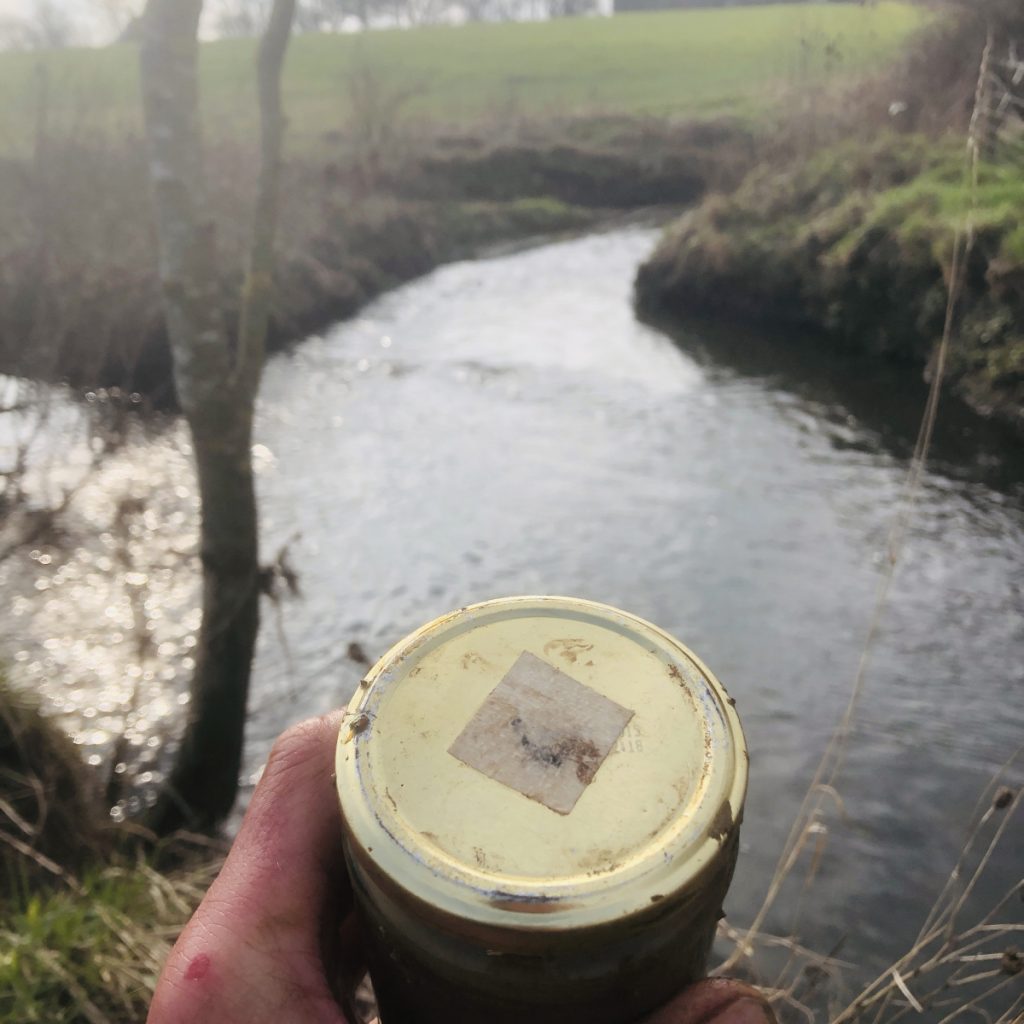This was a walk from the source of the river just outside Kirkby in Ashfield to where I ended the last walk north of Langley Mill. This is the most natural section of the river, I hardly met a soul and it felt wild and remote in places. The contrast between the other section I walked was significant, here nature felt it was in control and there was a calmness on the entire journey.
I recorded another set of videos, this time taking a selection of Google reviews of North Korean restaurants and train stations. I was trying to find yet more unexpected connections but here I was purposely pushing the bounds of absurdity more so than I before. Even though I’d lost the political context, the reviews of train stations had a connection with the post-industrial landscape I was walking through. So by reviewing historical infrastructure I am subliminally commenting on the nature of future developments such as HS2.
As before, I collected mud samples and collected images from the locations where they came from. The aspect of the collection that emerged on this walk is how much I studied the substrate in the river as I collected it. I saw how much it varied in colour, texture and quantity – in some locations there was no material available at all. So the collection had become less about the samples themselves but more about the act of repetition and studying the variation between sites. I found myself asking what had caused the variations between sites; was it just the nature of the landscape the river was passing through or was it the speed or other quality of the river that had caused the variations. For example, near the source of the river the substrate was stony with little mud present but further downstream it slowly turned to fine silt. This natural power of a river to break down rock into silt and mud over thousands of years was a quiet reminder of the cycle of life around us.
I came away thinking about how time is perceived on a human scale and how much we cannot perceive because things happen so slowly. What if our sense of time was 1000 times faster, how would this affect our impression of a river? I think of the life of a mayfly that spends several years under water and emerges to live for only 2 hours and desperately attempts to mate before it dies. So it’s an interesting thought that if human time was massively shorter or longer, how would our understanding and appreciation of what we experience would change?
I’ve also been exploring more advanced use of HitFilm Express such as video overlay and audio distortion. The clip below was a quick experiment and here I changed the audio speed, reversed it and added echo. I’ve hardly scratched the surface of what could be achieved but feel confident that I could easily create complex and professional output for this project if required.
Summary & next steps
I’ve now got a good appreciation of the River Erewash as it curves its way to the Trent. I wonder how many other people have done the same journey as I have? There were certainly places where I thought few had passed through and those places were the most memorable. So I need to think about what aspect of the river is most potent to play with, to simplify what I have found into something that will generate wonder in an audience. The scale is impressive, as is a river’s relentless, powerful movement under gravity so I need to consider whether I want to juxtapose those natural observations against a covert political agenda. I think the next stage is to present what I have to a peer review session to spark lateral thinking away from the complex landscape I’ve been embraced by.
